SUMMARY
This is AI generated summarization, which may have errors. For context, always refer to the full article.
![[Finterest] End to petsa de peligro? How earned wage access can help you avoid loans](https://www.rappler.com/tachyon/2023/01/shutterstock-digital-money-lending-app.jpg)
MANILA, Philippines – What if there was a way for you to access your salary whenever you needed it?
Think about it. You go to work and earn your wages every day, but you only get paid twice a month. For those who live paycheck to paycheck, that can pose problems – like when you need to pay a big electricity bill now, but your salary hasn’t come in yet.
To bridge this gap between now and the next pay day, some ask for bale or salary advances, which can put a strain on the cash flow of businesses. Others turn to salary loans that can have exploitatively high interest rates.
This is where earned wage access (EWA) and service providers like Paywatch can help. The most basic way of explaining EWA is that it’s salary on demand. It’s like withdrawing the money that you’ve already earned but haven’t been paid yet.
“Earned wage access is really the employee having the ability to access their pay for the days that they’ve already worked,” Paywatch Philippines president Rowell del Fierro told Rappler.
Del Fierro explained that EWA is not a salary advance because it only provides employees access to the accumulated salary of the days that they’ve already worked for – meaning that this is already a payable by the employer to the employee. It’s also not a loan, so there’s no danger that employees will borrow too much, because they’re not borrowing any amount.
An EWA service provider, such as Paywatch, must first link up with an employer. Once that’s established, employees can download the Paywatch app. From there, they simply transfer a set amount of their daily salary to their payroll bank account for a flat fee of P38.
Usually, employers allow employees to access 30% of their daily wage a day. That means if you earn P30,000 in a month, or P1,000 a day, you can withdraw up to P300 every day. If it was the 10th day of the month and you needed money for an emergency, you could withdraw P3,000 through the app – a process that’s available any time of the day and doesn’t require approval from your employer.
EWA does not disrupt the cash flow of employers either because it’s not the employer that has to directly pay the employee every time they withdraw through the app. Instead, it’s Paywatch that gives the money to employees, and then the employer just settles the amount with Paywatch at the end of every period.
Problem of debt
In the Philippines, lots of households take on loans. The latest Consumer Expectations Survey of the Bangko Sentral ng Pilipinas found that 1 in 4 households availed of a loan in the past 12 months, with the most common purpose of the loan being to buy basic basic goods (49.7%).
At the same time, the average Filipino still associates stigma with debt. According to a 2023 study of private credit reference agency TransUnion, more than half of surveyed Filipinos (57%) believe that users of credit products tend to overspend or are already in debt. Another 26% believe that those people are “irresponsible about their finances.”
So what happens when you have a population that’s heavily reliant on loans and yet feels ashamed of being in debt? Some Filipinos turn to shady digital lending apps with exploitative interest rates that can hit up to 10% per day.
It’s tempting because they can borrow without anyone having to know that they’re in debt, and in most cases, they can pay it off when pay day comes – even with the high interest.
The problem is when they get caught in a situation where they have several emergencies. They get stuck. And with late payment penalties, their debt can quickly pile on. Paywatch Philippines president Del Fierro is passionate about changing that because simply put, it’s not fair.
“If you think about fairness, the people who have the least access are going to be charged the highest fees. Because in general, they are seen to be the highest risk. So the ones who need it the most – the ones who can least afford it – are being charged the highest,” Del Fierro told Rappler.
Essentially, when someone takes on a salary loan, they are borrowing using their work hours – wages that they’ve already worked and earned – as collateral.
“How is it fair that I’ve already worked for it, and not only do I have to borrow it, but I also have to pay the highest fees in the market?” the Paywatch executive said. “It happens to the desperate. When people are desperate, price is not the main consideration.”
In contrast, EWA helps employees manage their emergencies and unexpected expenses better because no debt is incurred and no interest is paid. At the most, employees only have to pay a flat transaction fee.
When employers are particularly supportive of the program, sometimes employees don’t even have to pay anything at all to access their earned wages. Del Fierro told Rappler that some companies opt to shoulder the P38 convenience fee, while others pay Paywatch a certain subscription amount so that employees are only charged P25.
EWA is also empowering. For instance, Del Fierro said that some of those using the app withdraw earned wages to use for their daily commute to work. Before, some of those workers may have opted to just skip work rather than bear the “shame” of borrowing from co-workers or friends to pay for their commute.
EWA tips
Del Fierro’s advice to employees who already have an EWA facility is that they shouldn’t hesitate to use it if they need a way to balance their earnings and expenses.
“I encourage them to make use of it. It’s their money,” he told Rappler. “If they can access their earnings, that should be the first pocket that they should access, and not loans.”
In Malaysia – a market where Paywatch has operated for a longer time – Del Fierro said they observed employees using EWA to actually pay off their old loans. For instance, employees would withdraw some of their earned wages to make a minimum payment before late payment penalties hit, an important first step to managing existing debt.
Now that you’ve heard all the benefits of EWA, it might sound like the solution to many of your liquidity problems. But that doesn’t necessarily mean you should turn to an EWA facility for everything, especially if you already have a credit card.
“If you already have credit cards, then that’s great. I think you should use that. You earn points, and if you pay in full, then you don’t pay any interest. That means you’re using the bank’s money for your cash flow,” Del Fierro said.
However, the majority of Filipinos don’t have access to credit cards. As of February 2024, there were 48.95 million employed Filipinos. But there were only 12.2 million cardholders as of end-June 2023, according to the latest available figures from the Credit Card Association of the Philippines.
And there’s always a risk that you can’t pay your credit card bill in full every month, meaning you become a “revolver” that pays high interest on your monthly balance. Meanwhile, EWA providers help employees without credit cards meet their cash flow needs.
“This is really more preventive that for those who don’t intend to borrow, that they are able to access something for emergencies and for essentials,” the Paywatch Philippines president said. – Rappler.com
Finterest is Rappler’s series that demystifies the world of money and gives practical advice on how to manage your personal finance.
Add a comment
How does this make you feel?
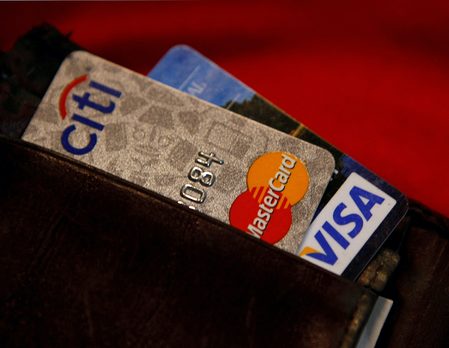
![[Finterest] End to petsa de peligro? How earned wage access can help you avoid loans](https://www.rappler.com/tachyon/2023/01/shutterstock-digital-money-lending-app.jpg?fit=449%2C449)
![[Finterest] Is a digital bank safe, and how can you best use it?](https://www.rappler.com/tachyon/2024/05/digital-banks-safety-may-11-2024.jpg?resize=257%2C257&crop_strategy=attention)
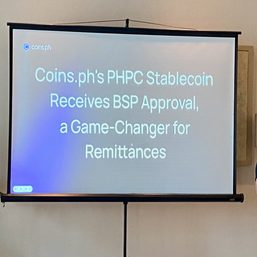
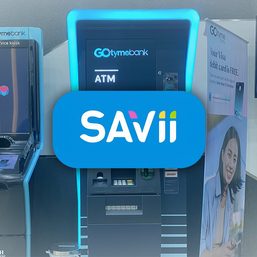
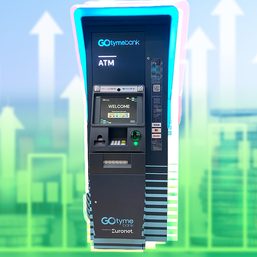
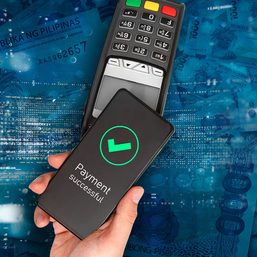
There are no comments yet. Add your comment to start the conversation.